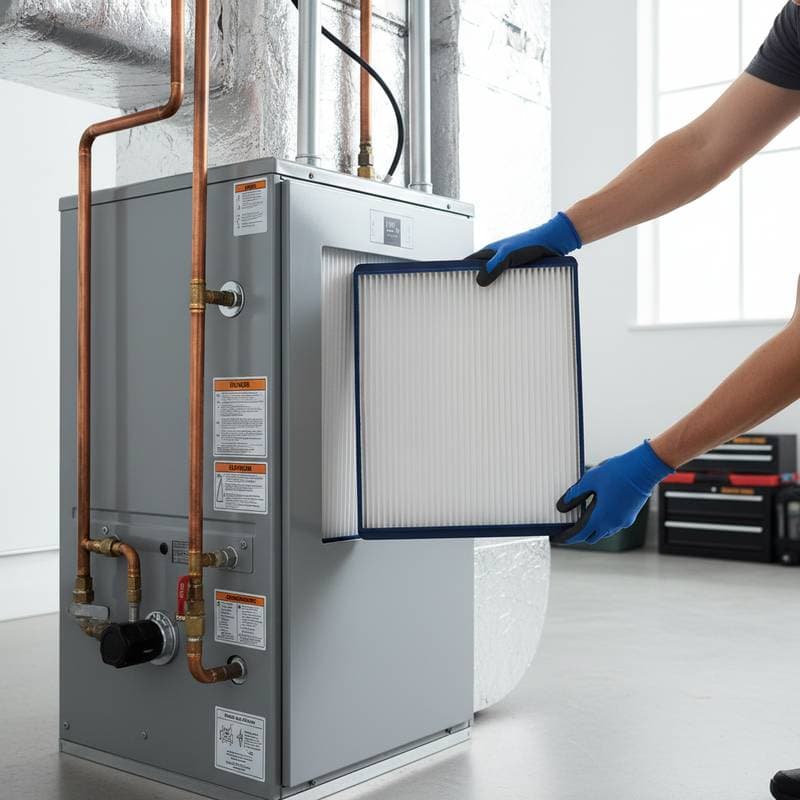Heat Pumps: The Key to Cutting Water Heating Costs by Two-Thirds in 2025
Water heating accounts for a significant portion of household energy expenses. Heat pump water heaters offer a reliable solution by efficiently transferring heat from the air to the water. This approach can reduce costs by up to two-thirds compared to traditional electric or gas units. Homeowners benefit from lower bills and reduced environmental impact through this upgrade.
Understanding Heat Pump Water Heaters
A heat pump water heater operates by extracting heat from the surrounding air and transferring it to the water stored in the tank. The system employs a compressor, evaporator coil, and refrigerant to facilitate this process. Unlike conventional heaters that generate heat through resistance elements or combustion, this method requires less electricity to achieve the same results.
Optimal performance depends on ambient conditions. The unit thrives in areas with temperatures between 40 and 90 degrees Fahrenheit and adequate ventilation. Common installation sites include garages, basements, or dedicated utility spaces. This setup ensures a consistent supply of hot water while minimizing energy consumption.
Mechanisms Behind Cost Savings
Traditional water heaters convert energy into heat inefficiently, leading to higher utility bills. Heat pump models achieve a coefficient of performance often exceeding 2.0, meaning they deliver more than twice the heat energy relative to the electricity used. As a result, they consume approximately one-third of the power required by standard electric units.
Several features enhance these savings. Hybrid designs incorporate a backup resistance heating element that engages only during peak demand or cold weather. Integrated smart controls allow users to program operations for off-peak electricity hours. These elements combine to lower operational costs over time.
Long-term financial benefits include a payback period typically ranging from three to seven years, depending on local energy rates and usage patterns. Homeowners in regions with high electricity costs experience the most pronounced reductions. Environmental advantages, such as lower carbon emissions, further justify the investment.
Factors Influencing Efficiency and Savings
Efficiency varies based on environmental and operational conditions. In warmer climates, abundant ambient heat boosts performance, leading to greater savings. Colder regions may see reduced efficiency unless the unit operates in a conditioned indoor space.
Installation plays a crucial role. Proper airflow around the unit prevents overheating and maintains optimal operation. Selecting an appropriately sized tank avoids energy waste from oversized models running unnecessarily.
Household habits also affect outcomes. Larger families with high hot water demand benefit from the consistent performance of these systems. Monitoring usage through built-in diagnostics helps optimize settings for maximum efficiency.
Local electricity rates determine the speed of return on investment. Areas with tiered pricing or time-of-use plans amplify savings when paired with scheduling features. Consulting energy audits provides personalized insights into potential reductions.
DIY Installation Versus Professional Service
Attempting a do-it-yourself installation requires careful consideration of technical demands. Homeowners must handle electrical wiring, refrigerant lines, and venting, which demand specialized tools and knowledge. Errors in these areas can compromise safety and void warranties.
Professional installation ensures compliance with building codes and manufacturer specifications. Certified technicians assess site suitability, including space requirements and electrical capacity. They also integrate the system with existing plumbing, minimizing disruptions and maximizing efficiency.
Costs for professional services range from $1,000 to $3,000, depending on location and complexity. This investment often qualifies for rebates that offset expenses. For most households, hiring experts provides peace of mind and optimal performance from the outset.
Frequently Asked Questions
How long does a heat pump water heater last?
These units typically endure 10 to 15 years with proper care. Efficiency remains high longer than in traditional models due to fewer moving parts. Routine maintenance, such as cleaning the air filter every three months, extends operational life.
Can a heat pump water heater function in cold climates?
Performance decreases below 40 degrees Fahrenheit, but many models include defrost cycles to manage frost. Indoor placement in a basement or garage maintains effectiveness. Supplemental heating modes activate automatically in low temperatures.
Do heat pump water heaters qualify for incentives?
Numerous programs provide rebates, tax credits, and low-interest loans for energy-efficient appliances. Federal incentives under energy acts offer up to $2,000 per unit. Local utilities often add further discounts; a professional installer can navigate these opportunities.
What maintenance is required?
Basic tasks include quarterly filter cleaning and annual inspections of the condensate drain and electrical connections. Professionals recommend full servicing every one to two years to check refrigerant levels and compressor function. These steps prevent breakdowns and sustain efficiency.
Steps to Upgrade and Realize Savings
Begin by evaluating your current water heater's age and efficiency. Energy audits from utilities reveal baseline consumption and potential savings. Select a model certified by Energy Star for verified performance standards.
Next, plan the installation site with ventilation and accessibility in mind. Engage a licensed contractor for a site assessment to confirm compatibility. Explore financing options and incentives to reduce upfront costs.
After installation, monitor performance through the unit's diagnostics. Adjust settings to align with household routines and peak pricing periods. Regular upkeep ensures sustained savings and reliability for years ahead.





